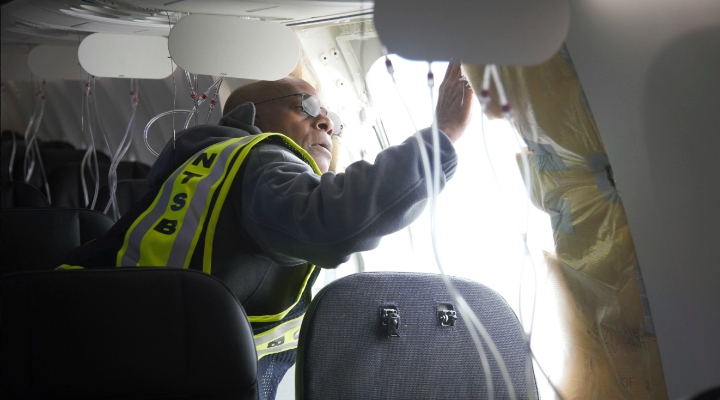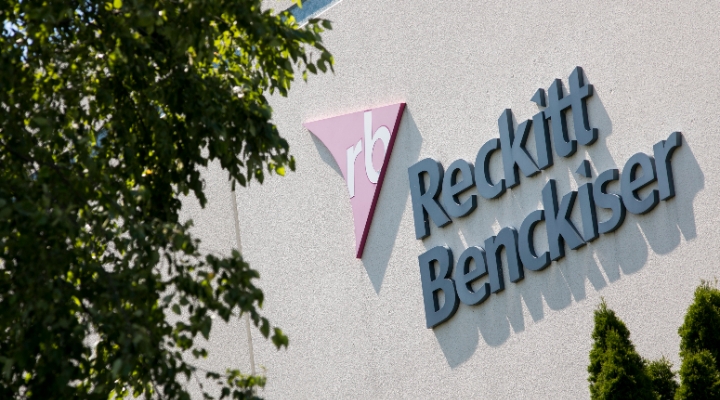
You might think Boeing's (BA) safety woes would put competitor Airbus (AIR) in prime position to snap up both its market share and some richly-deserved profits. The European conglomerate's 20% share gain this year certainly seems to suggest that.
But it's not quite that simple.
Though many airlines will now be considering their choice of aircraft supplier, market valuations currently suggest Boeing's woes are priced into expectations. Moreover, the dynamics of the aviation supply chain mean new Airbus buyers will have to think very carefully about the company's delivery times.
How is The Airline Industry Doing?
Four years after the covid pandemic spread across the world, global air traffic is returning to normality.
According to the International Air Transport Association, global airline traffic is likely to recover to 2019 levels by the end of this year. Indeed, the body’s February data show a 21.5% year-on-year rebound in global air traffic.
This healing process has propelled aircraft demand upwards and helped the aerospace industry itself recover. But while this has proven a huge opportunity for prospective investors in Airbus shares, shares in competitor Boeing have been lagging – to put it lightly.
This year, Boeing's long-standing quality control issues have once more reared their heads. At the heart of the problem is the 737 MAX jet, whose flaws have caused hundreds of fatalities and, more recently, the forced departure of chief executive Dave Calhoun.
Key Morningstar Metrics For Airbus
Fair Value Estimate: €162
Morningstar Rating: ★★★
Morningstar Economic Moat Rating: Wide
Morningstar Uncertainty Rating: High
In the wake of the latest round of problems, both companies' prospects have reversed. On valuation ratios alone, however, Airbus shares are already pricing in the challenges its major competitor now faces.
Boeing, which was trading at a 19% premium to Morningstar's Fair Value Estimate last December, now trades at a 11% discount.
Over the same time period, Airbus was trading at a 13% discount to Morningstar Fair Value Estimate in December. It is now trading at a 4% premium.
In the meantime, Boeing has reported a net loss of $2 billion (£1.6 billion) for the 2023 fiscal year, while Airbus recorded a net income of €3.8 billion (£3.2 billion). In 2023, Airbus delivered 735 commercial aircraft. Boeing delivered 528.
Whose Shares Are Better: Boeing or Airbus?
In the short run, chances of market shares moving quickly are probably overrated, Morningstar equity analyst Nicolas Owens says.
"Airlines that previously would never have bought Airbus are probably thinking about it now," he says.
"But the fact is that a new order for an Airbus would not be delivered until after 2030 – so we are talking about long-range planning. That is an example of how market share doesn't move quickly."
Over the long run, the prospects for the industry overall remain favourable, however.
Gross order intakes have recently reached a record of 3,775 orders for both companies, beating the previous record of 3,346 aircraft orders in 2014.
"The increased demand leading towards the commercial aero cycle recovery implies a need for additional capacity," Barclays analysts wrote in a report dated 27 March 2024.
"While new deliveries have been under pressure in recent years due to supply chain bottlenecks, airlines have tried to offset the capacity constraints through increased utilisation of existing aircrafts and by bringing aircraft out from parking hangars."
The companies' shares probably won't evolve dramatically, though.
Airbus is already a strong leader in the narrow body segment, with a market share analysts estimate at 62% (based on backlog figures), while Boeing is a dominant player in the wide body market, with a market share analysts estimate at 64% based on its current backlog and 62% if installed fleet figures are accounted for.
Nevertheless, according to Barclays, Airbus may gain some more market share in the wide body segment if the launch of its A350 freighter goes well. As such, it is possible it still has some room to grow, even if its shares are trading at a higher multiple than Boeing.
The only question is this: will the coming change of leadership at the top of Boeing lead investors to bet on a stronger recovery for the scandal-hit company? We won't know until the new boss lands in 2025.



























